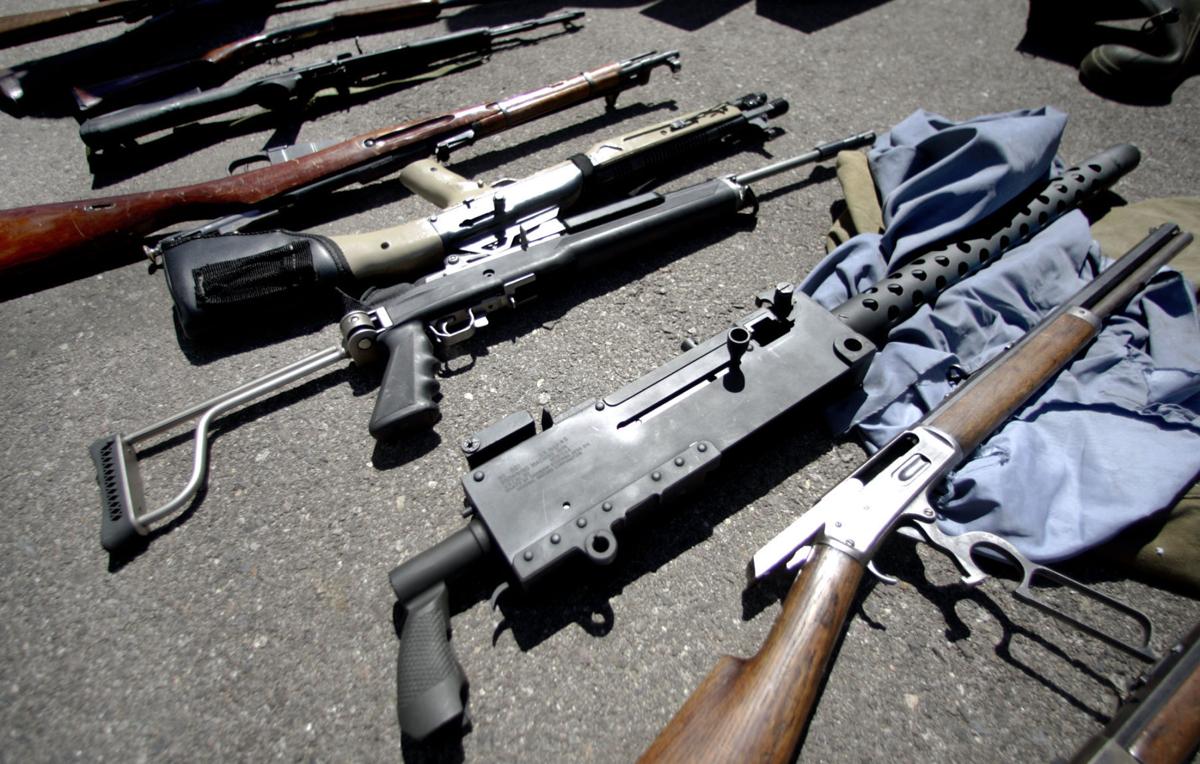After the Tucson City Council refused Tuesday to permanently stop the practice of destroying confiscated firearms, Attorney General Mark Brnovich asked the Arizona Supreme Court to cut off the city’s state aid.
Potentially at stake in the showdown over local control is $115 million a year that Tucson receives in state-shared revenue.
The City Council voted 7-0 to reject Brnovich’s demand that it repeal its 2005 ordinance requiring the destruction of most handguns and semi-automatic weapons seized by police.
Tuesday’s action is the first test of a new state law giving Brnovich the power to pressure cities to change policies he believes contradict the wishes of Arizona lawmakers. The law, known as SB 1487, allows the state to withhold state-shared revenues if Tucson refuses to repeal its legislation.
On Tuesday, city officials revised downward the dollar amount they believe is in jeopardy if Tucson loses in court, saying only two types of state revenue are applicable. The city received a total of $115 million from both last year.
These funds are used to pay for law enforcement, city courts, public transportation and the parks and recreation department, said Joyce Garland, the city’s chief financial officer.
The City Council said it will temporarily stop the practice of destroying guns until the legal issue has been resolved, but it ordered City Attorney Mike Rankin to take all legal action to defend the city’s rights under its voter-approved city charter.
The first action will be to file a separate legal challenge of a requirement under SB 1487 that the city post a $57 million bond in order to challenge the attorney general in court, said Mayor Jonathan Rothschild.
The 2016 law mandates that any community that wants to fight the attorney general in court must first post a bond equal to half of its annual state aid.
That requires an unprecedented and unconstitutional multimillion-dollar filing fee just to access the court system, Rothschild said.
If the Supreme Court rejects the city’s appeal, he said the city will pursue other legal options.
“In my practice of law, in which I did for a little while, what I learned was you take it one day at a time,” Rothschild said. “I am confident in our position, but if a court gives us guidance else-wise we will find the tools to deal with it.”
Councilman Steve Kozachik was less sure about the city’s options if a judge throws out the city’s appeal to waive the bond.
“We don’t have that kind of cash,” he said.
Councilwoman Regina Romero said the state targeted Tucson with SB 1487 and a lawsuit was inevitable. “We were waiting on this,” she said.
The motion approved by the council says the destruction of seized firearms serves the protection of public safety and the safety of police officers.
Exceptions in the city’s ordinance say weapons won’t be destroyed if needed as evidence, or if the police department wants to keep a gun for its own purposes, to transfer it to another law enforcement agency, or lend or transfer it to a museum.
Brnovich said it still runs afoul of several state laws.
The first, enacted in 2000, explicitly prohibits local governments from enacting any ordinances dealing with the acquisition, licensing, registration or use of firearms.
More specifically, a 2013 state law bars law enforcement agencies from destroying firearms. A companion measure says the only proper way to dispose of a seized weapon is to sell it.
Tucson city records show 4,820 guns have been destroyed since the beginning of 2013.
Brnovich rejected arguments by the Tucson City Council that cities have a right to make their own decisions.
He told the justices that SB 1487 specifically gives him the right to intercede and ask the high court to punish offenders.
Officially, the lawsuit asks the high court to give Tucson a deadline by which it has to repeal the ordinance.
Brnovich said there’s a public interest in keeping cities from destroying weapons because requiring them to sell off what they seize not only increases the supply but also lowers the costs to buyers.
He also argues that allowing otherwise usable weapons to be destroyed runs afoul of the Legislature’s position “that increasing the supply of legal firearms is in the interest of public safety” because it helps fight crime.
Brnovich’s lawsuit is built on legislation crafted by Senate President Andy Biggs, who complained during hearings earlier this year that there is a “growing disrespect for state law” by local governments.
The law allows any lawmaker who thinks a local regulation is contrary to state to require the attorney general to investigate. In this case, it was Rep. Mark Finchem, R-Oro Valley, who filed the complaint.
While the court fight technically involves weapons, it will require the justices to determine exactly how much authority charter cities have to write their own laws.
Tucson is among 18 cities that have taken advantage of a constitutional provision allowing them to write their own charters. And even Brnovich conceded that such charters “supersede all laws of the state in conflict ... as such laws relate to purely municipal affairs.”
It was that provision which allowed Tucson to successfully challenge a 2012 state law that sought to dictate when cities can have local elections.
“But firearms regulation, including regulating the destruction of firearms, implicates statewide interests and therefore is not of purely local concern,” Brnovich is arguing.
One issue for the justices to decide is whether guns are different than other property.
Brnovich acknowledged there are two court decisions that ruled the sale or disposition of property by charter cities “is a matter of solely local concern in which the state legislature may not interfere.” But he said those cases involve land and not personal property.





